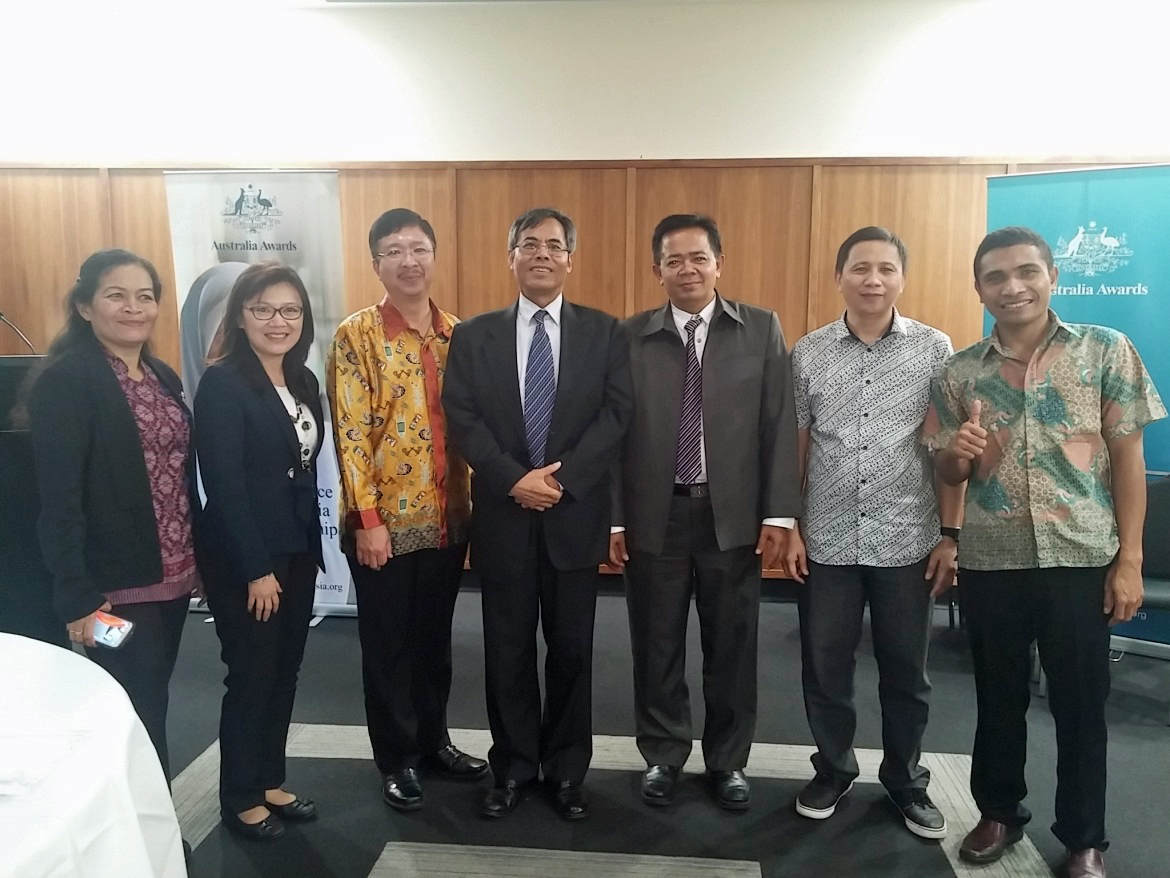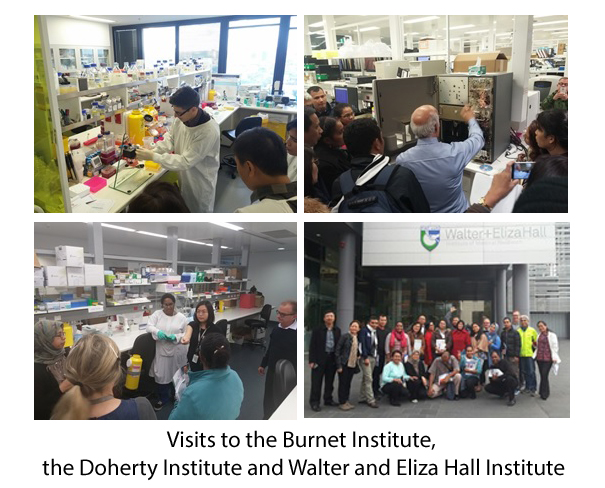
28 April 2025
Honouring the Recipients of the Australian Alumni Grants, the Allison Sudradjat and Hadi Soesastro Prizes: Round 1, 2025
We are pleased to announce the recipients of the first round of 2025 Australian Alumni Grants and th... Read more
The Australia Awards are prestigious, transformational scholarships and short courses offered to emerging leaders for study, research and professional development in Australia

01 July 2016
 Transferring Knowledge on Malaria
Transferring Knowledge on Malaria
Transferring Knowledge on Malaria
Written by Victor Eka Nugrahaputra
Edited and translated by Australia Awards in Indonesia
Understanding malaria is not a simple matter. Even having served as a doctor—be it as a clinician or programmer—in the highly malaria-endemic area of West Papua Province for close to 20 years, does not mean that one has fully grasped the characteristics of malaria. Even if one has experienced firsthand numerous times what it’s like to be infected by tertiana and tropical malaria, it does not mean one knows everything about how to control malaria. And so, learning from the experts in each respective field becomes a humble outlook that everyone must have, even the experts, as they are not necessarily expert in every field.

That is what we learned while participating in the Australia Awards Malaria Prevention and Treatment for Infants, Children and Pregnant Women in Eastern Indonesia Short Term Award in Melbourne, 9-27 May 2016.
Lisa Davidson of the Burnet Institute, Melbourne, shared her experience in Home Malaria Management implemented in East New Britain, Papua New Guinea. In the midst of the malaria crisis, limited infrastructure and health resources, the participation of the community became key. There are five key factors that need to be taken into consideration so that a program involving the community could be carried out effectively:
Aside from stating that “indigenous knowledge sits in place”, Prof Kerry Arabena from the Indigenous Health Equity Unit, Melbourne School of Population and Global Health (MSPGH), also elaborated on how collective impact can be realised when the indigenous community are invited to collaborate in solving issues, including malaria management. When working together with a certain community, the program, project, or horizontal intervention implementers were reminded of the key points encapsulated within the Taranaki Rules—amongst them being:
It isn’t necessary to teach the understanding of principles using a one-directional, rigid and serious method. On the contrary, key issues can be imparted through a participatory, interesting and fun method. Lisa Davidson used candies to illustrate the difference between qualitative and quantitative research.
Share this news on:
 Related News
Related NewsThis website uses cookies to improve your website experience. We may also use cookies to analyse website data so that we can improve our online services. To find out more visit our privacy policy.
